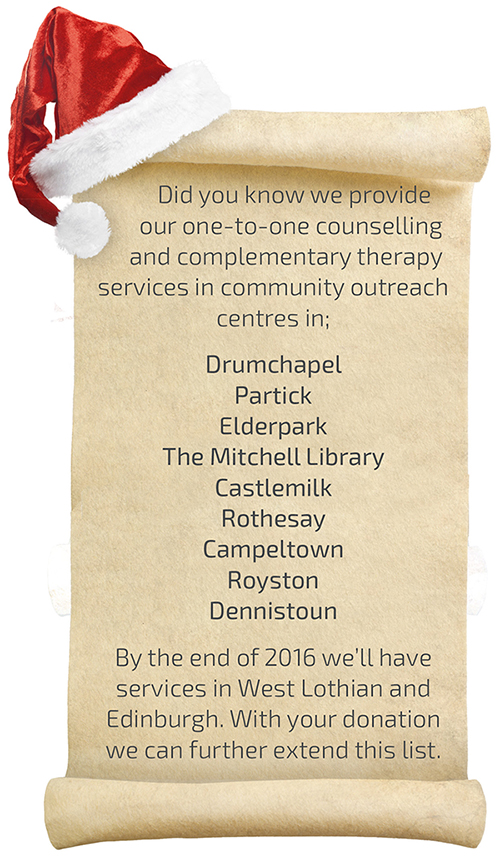Well done to all our cyclists for taking on the 36 mile challenge – we hope you enjoyed the day! We would like to say a massive thank all our cyclists for all their hard work and fundraising – we look forward to announcing a grand total soon.
We would also like to thank Willie from Q Bikes, Paisley, who kindly joined us on the day to help us with mechanical issues and punctures. Also a big thanks to Wholefoods who generously put on snacks and refreshments outside their store so our cyclists could refuel. Thank you also to the Houston Inn for having us for burgers and drinks in their sunny garden – it was the perfect finish line!
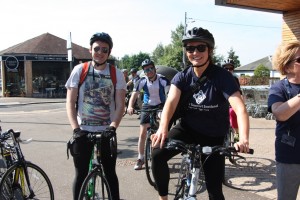












































































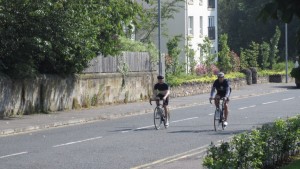
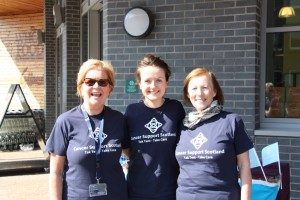
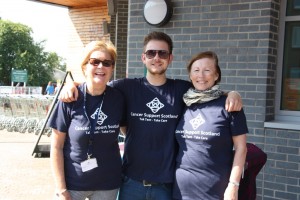

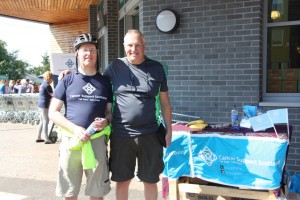
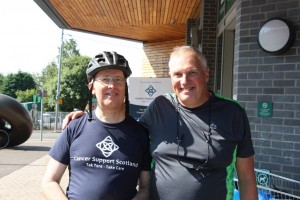
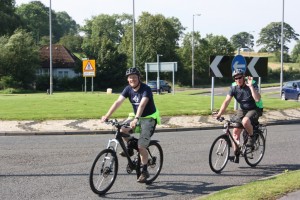

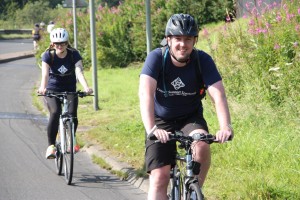
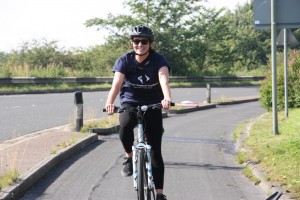
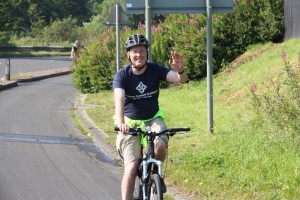
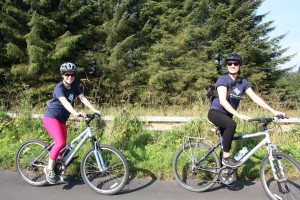
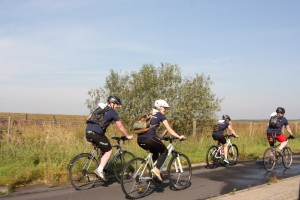
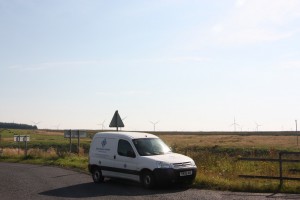
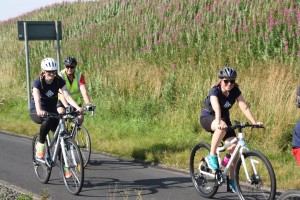
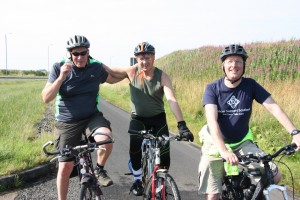
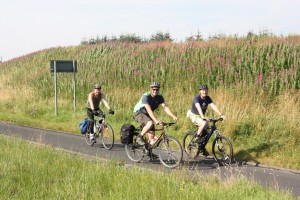
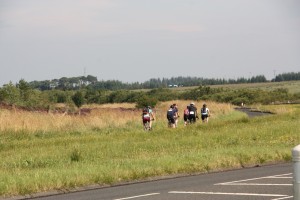

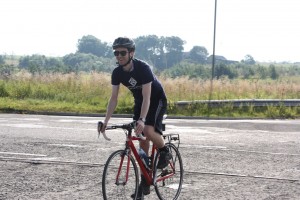
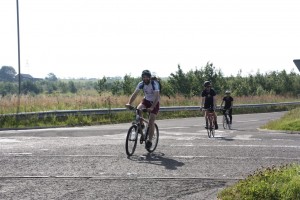


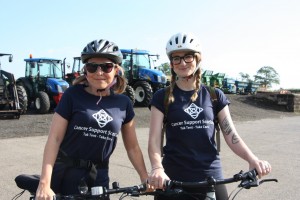




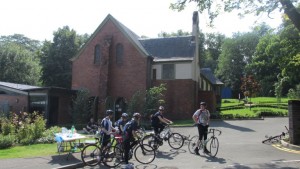
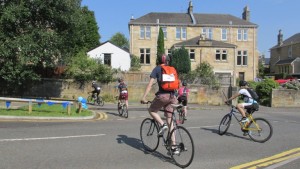
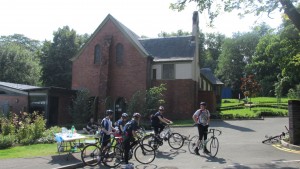
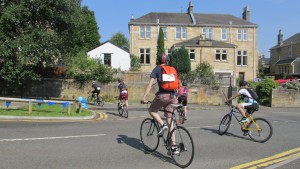
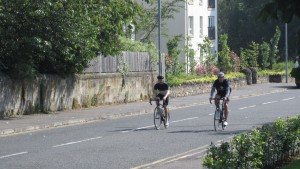
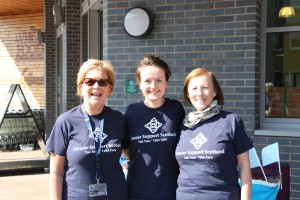
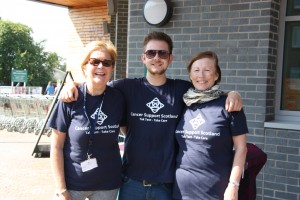

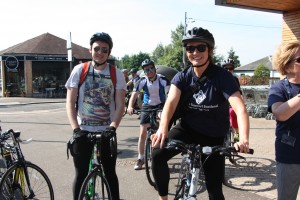
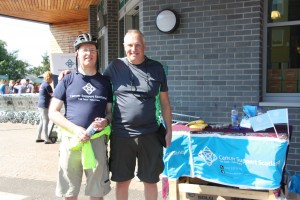
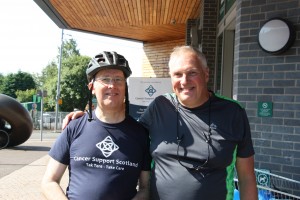
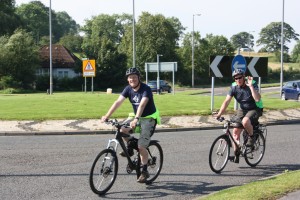
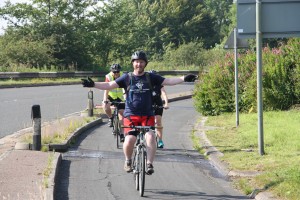
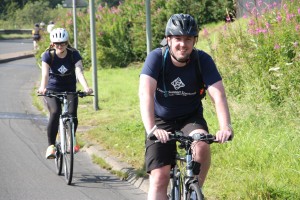
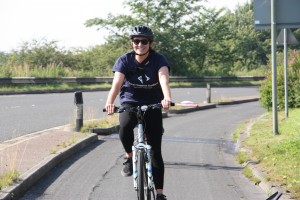
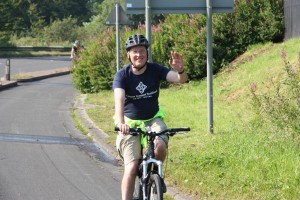
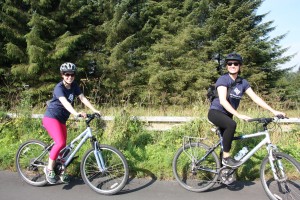
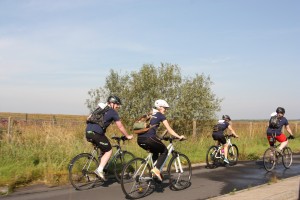
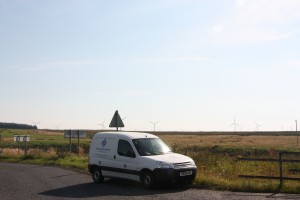
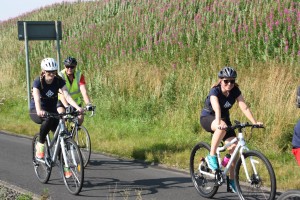
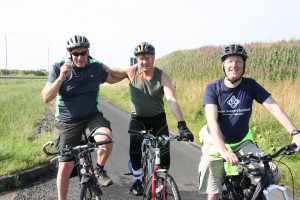
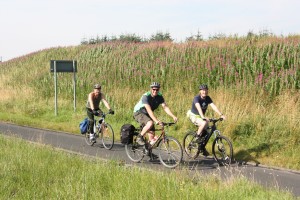
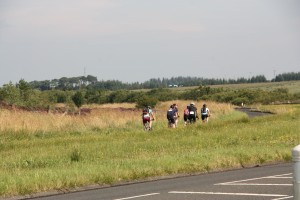

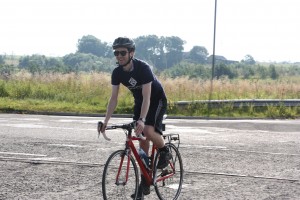
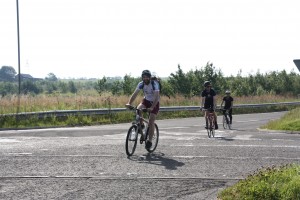
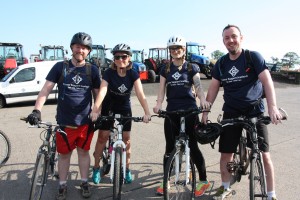

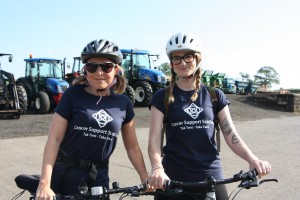


 ]]>
]]>Head down to the WH Smiths shop at the main entrance of Gartnavel Hospital and see what delights you can pick up. We have a variety of gifts for sale each month such as gorgeous knitted cardies for babies, books, stationery plus lots of other gifts kindly donated by the public.
All the money raised goes back into funding Cancer Support Scotland so your support is always appreciated. Also, if you have anything you would like to donate that we can sell at the stall then please don’t hesitate to get in touch on 0141 337 8199 or e-mail: [email protected]
]]>For a minimum donation of £50 your chosen name will be etched on a plaque in our private terraced garden. Donations of £250 and over will be recognised inside the centre on our glass Donor Wall.
Donate using the ‘donate box’ on this page or follow the instructions below.
Pop into the Calman Centre to pick up a form. It is also possible to download a form here and return it to:
Cancer Support Scotland
Calman Cancer Support Centre
75 Shelley Road
Glasgow
G12 0ZE
For more information please contact [email protected] or call 0141 337 8199 or freephone0800 652 4531.
Michael Buchanan has been recognised for all his efforts over the years and is now our Honorary President. Michael has had a very long association with the charity and his wife May worked for us for 17 years before retiring just a couple of years ago. A new Vice-Chairman will take his place on the board and Craig Mackie, Business Director of the Glasgow-based Shine Agency, has been appointed. David Semple continues as our Chairman of Trustees.
The conference heard an excellent address from Scottish Conservative Party leader Ruth Davidson MSP who gave her views on the future of the NHS post-referendum, especially regarding cancer care and how organisations like Cancer Support Scotland will play their part. This was followed up by Professor Ken MacKenzie, leading ENT Consultant at the Royal Infirmary, who explained why there has been a marked increase in the number of people diagnosed with head and neck cancers. The afternoon saw our Patron, Professor Sir Kenneth Calman, deliver an insightful talk about cancer care.
We would like to congratulate all of our volunteers who took part in our ‘Volunteer Celebration’ at the conference. The broadcaster, Judith Ralston, helped us thank all of our volunteers for their hard work and commitment to the charity. All the volunteers who attended the conference received an award celebrating the number of hours they have contributed to helping Cancer Support Scotland and we hope they continue to be part of our team for many years to come. If you weren’t able to get to the conference, you will receive your award in December.
]]>Reiki is a gentle and safe technique. It has been found to be very calming and reassuring and can promote relaxation and healing.
The method of receiving Reiki is simple. The recipient remains clothed and lies on a couch or sits on a chair and relaxes. The practitioner gently places their hands in a series of non-intrusive positions on or near the body. There is no massage or manipulation. The whole person is treated rather than specific areas. Energy centres (Chakras) as well as other areas of the recipient’s body are worked on.
Reiki practitioners are not trained in diagnosis and will not predict any specific outcome from treatment.
What do Reiki Treatments feel like? Each person experiences Reiki differently depending on their individual needs at the time.
Clients may or may not feel sensations during a Reiki treatment. Benefits reported by recipients include deep relaxation promoting a calm, peaceful sense of wellbeing. Some people feel sensations of heat, tingling, or experience seeing colours, while others can have an emotional response indicating that shifts are taking place, allowing harmony to be restored.
]]>What is HeadStrong?
HeadStrong is a service which can help prepare people for the possibility of losing their hair due to cancer treatment. At a private appointment, a trained volunteer will talk a patient through how to look after their hair and scalp before, during and after treatment.
What is covered?
People are shown how to make the most of alternatives to wigs by using scarves, hats and other headwear. This practical session aims to find out which style suits them best.
The aim is to make sure that whoever uses the service leaves feeling confident they’ve found something that works for them. This service is available to anyone who is undergoing or is just about to undergo chemotherapy, no matter what kind of cancer it is.
